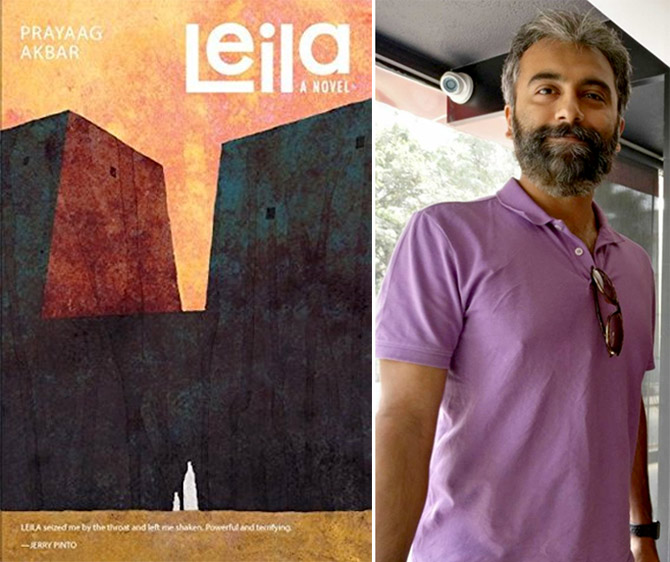

Its borderlines, however, are entirely made in India, a country obsessed with the matrices of religion and caste. The world of Leila is naturally reminiscent of Margaret Atwood’s The Handmaid’s Tale and the surveillance politics of George Orwell’s 1984. In the aftermath, Shalini is ostracised to “The Towers”, a purity camp designed to resuscitate obedience for the need of “purity for all” in the “social rebels”. On her third birthday, however, Leila disappears in the midst of a raid which also results in Riz’s death. After Shalini moves in with Riz, they shift to a society for “mixed”’ couples and she gives birth to Leila. The elite prize here, is “purity”, a vague form of political identity that they claim, preserve, and extract through the militant violence of men known as “repeaters”. In the book’s “dystopian” universe, segregation is the only constitution: the privileged live in walled cities that are categorised by community, religion, or caste.

Leila follows Shalini, an elite, well-to-do woman who marries Riz, a man from a different religion – a thought that causes some discomfort in most geographies and communities even today. Leila’s world is here in the vacuum left by each breath Payal Tadvi could not take. It is a map traced by our everyday prejudice, a map that Akbar believes, mow exists to a point beyond denial.

Even though the story centers around a mother’s search for her missing daughter, what it really focuses on is eking out the grim, yet honest map of a country that has cut itself into pieces. Despite the differing position they occupy in the ladders of social heirarchy, they’re tied together by the oppression they face: while the former gradually experiences discrimination, the latter most likely lived with it since birth. Though it is set in the future, the complications of Leila responds to the current times, which seamlessly dissolves Shalini’s agony and Tadvi’s suffering. A government-appointed panel says that Tadvi was ragged and not discriminated against because of her caste, but horror stories have emerged of how she was harassed because she belonged to an Adivasi community.Īlso read: Justice for Payal: Mumbai doctor’s suicide sparks contentious debate on workplace casteismīased on Prayaag Akbar’s eponymous novel, Leila begins with Shalini, a mother lighting a candle in the memory of her daughter who was separated from her 16 years ago. Almost a month before the release of Netflix’s Leila, Payal Tadvi, a 26-year-old MD student from Mumbai committed suicide.


 0 kommentar(er)
0 kommentar(er)
